FUNDAMENTALS OF CULINARY ARTS
52 hours
Focusing on fundamental culinary techniques and criteria for selecting quality ingredients, this course will offer an introduction to culinary technique as applied to plant-based foods. After an introduction to knife skills, sanitation, food and kitchen safety, culinary math and nutrition science, the course teaches a broad range of cooking methodologies for preparing plant-based foods. This will begin an exploration of the techniques and methods that are the foundation of fine cooking.
Course highlights:
- Knife skills.
- Culinary math.
- Culinary techniques including poaching, sauté, braise, pressure cook and roast.
- Handling and mincing herbs, and toasting and grinding spices.
- Dishes include: baba ganoush, French-style braised fennel, grilled za’atar-spiced cabbage steak and broccoli tempura.

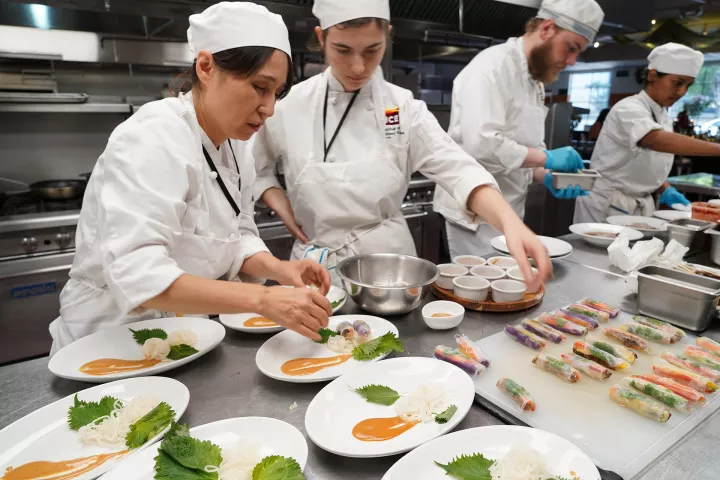
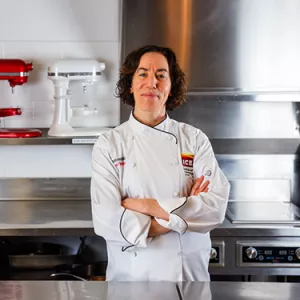

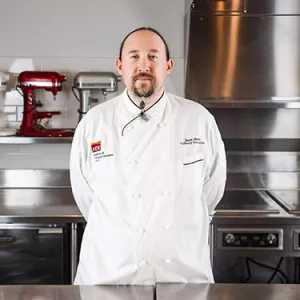
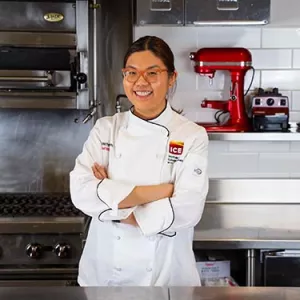
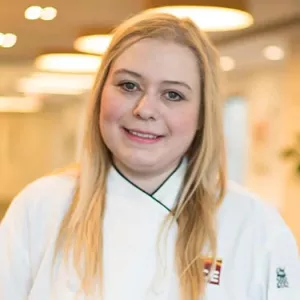
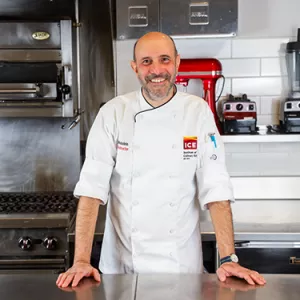
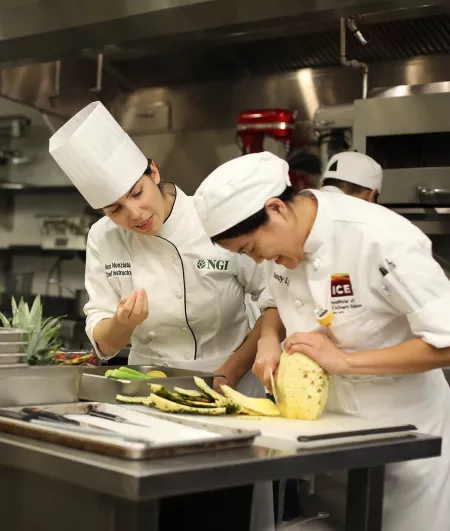
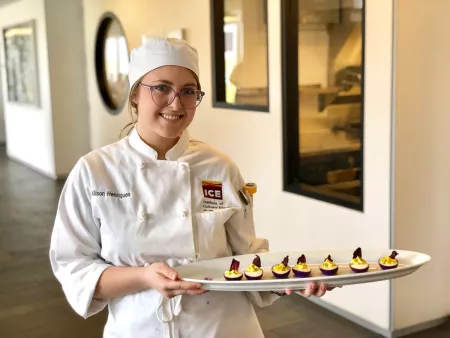
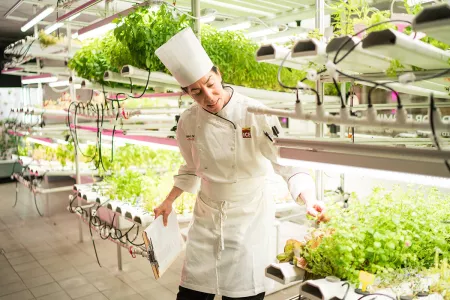
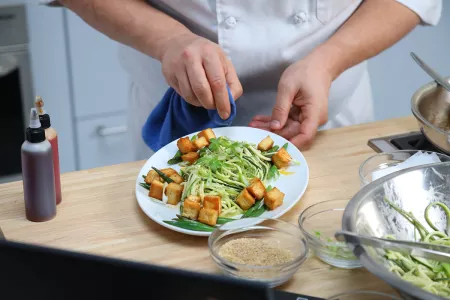
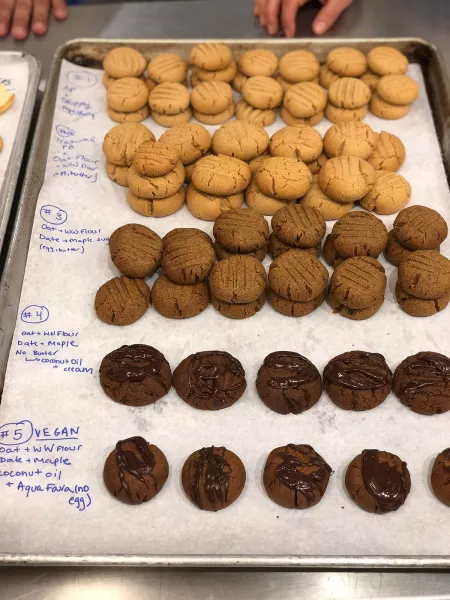





 "I enrolled at ICE because I needed a career change. I chose the Plant-Based program specifically for the nutrition component. Having been diagnosed with two chronic illnesses, I felt it was important to explore that. I strongly believe in food as medicine and that it is going to be the future of the culinary world."
"I enrolled at ICE because I needed a career change. I chose the Plant-Based program specifically for the nutrition component. Having been diagnosed with two chronic illnesses, I felt it was important to explore that. I strongly believe in food as medicine and that it is going to be the future of the culinary world."

